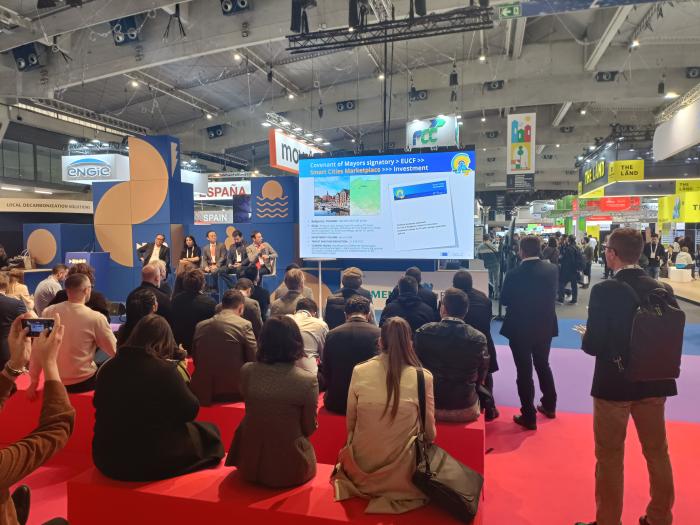
Smart Cities Marketplace
Contribution by Luigi Lo Piparo from the Smart Cities Marketplace
Key Points:
- The Cities’ Challenges Pitch was a joint undertaking from ACCIÓ, GOOSE, and the Smart Cities Marketplace to match the needs of cities all over the world with start-ups, corporations, and investors.
- Luigi did a high-level contextualisation of the EC efforts in decarbonisation, with resources to the ongoing EC initiatives (NZC, EU Cities, SCM), and the importance of focusing on cities with these initiatives. He also mentioned the SCM as a pathway to accelerate city projects with support and financing.
- 7 challenge owners from Colombia to South Korea presented their most pressing issues in the areas of mobility, energy, and health, to inspire the private sector to help mitigate these.
- Meetings were held before the session, online and in-person, to match this supply and demand.
- 5 challenge owners from the ACCIÓ network presented their challenges (Pato de Minas, BR; Valle del Cauca, COL; Westminster, UK; South Korea; Malaysia).
- Barcelona case study: ‘We did model like Gaudi did – air quality monitoring at the school gates, giving the data to the teachers and kids, which delivered 20% reduction of car drop off.’
- Luigi presented the Bydgoszcz use case, showcasing the current needs of the Polish city and also presenting their ongoing project: locally producing green hydrogen through PV plants for use in public transport. 50 Mio EUR investments are needed, discussion with SCM network of investors is ongoing.
- Pablo Rosa Casado from Don Cicleto represented the city of El Escorial and Don Cicleto and showcased their current needs and application within the SCM. The active mobility project regards secure bike and scooter parking infrastructure, while also accommodating leisure cyclists from nearby capital Madrid.
- Valle del Cauca, Colombia are working with local industry on decarbonization, and organising a carbon market.
- Patos de Minas is addressing challenges in (regional) public transport which is confronted with a current average speed of 7 km/h.
Related topics
Smart City Theme
